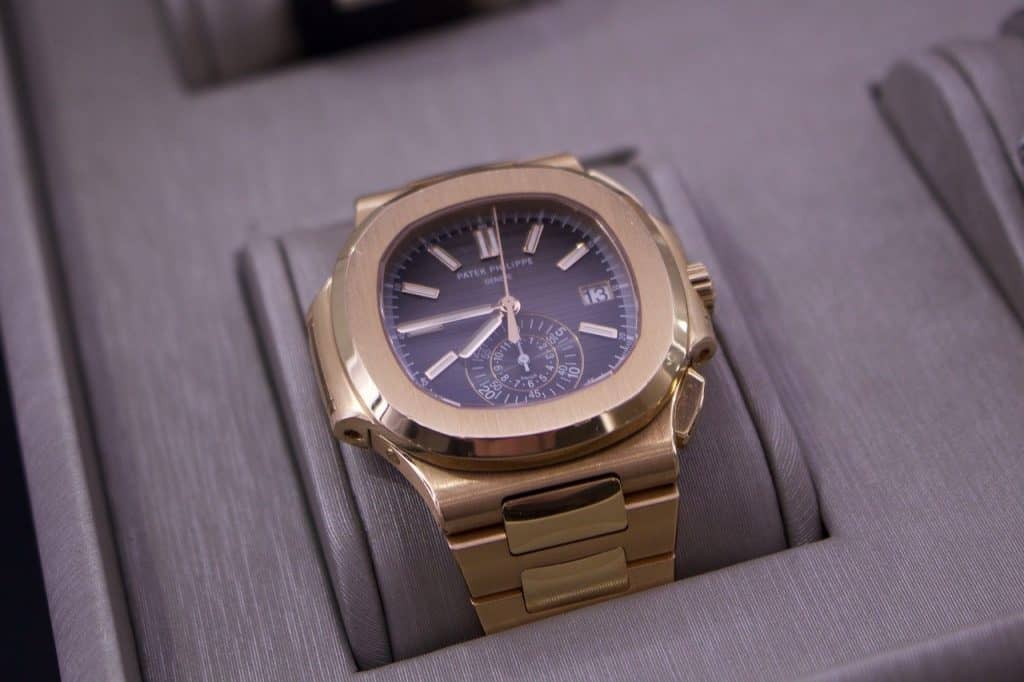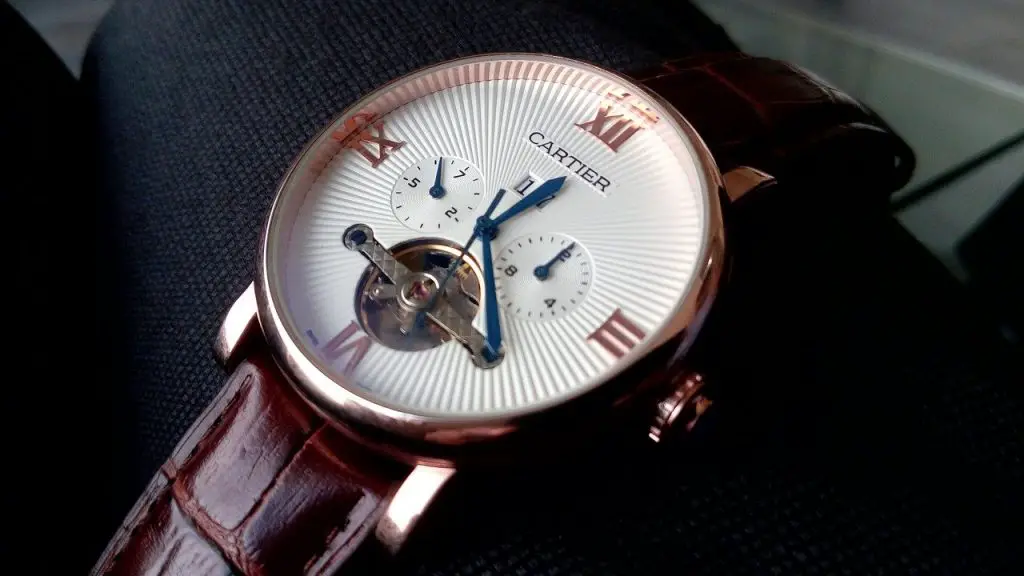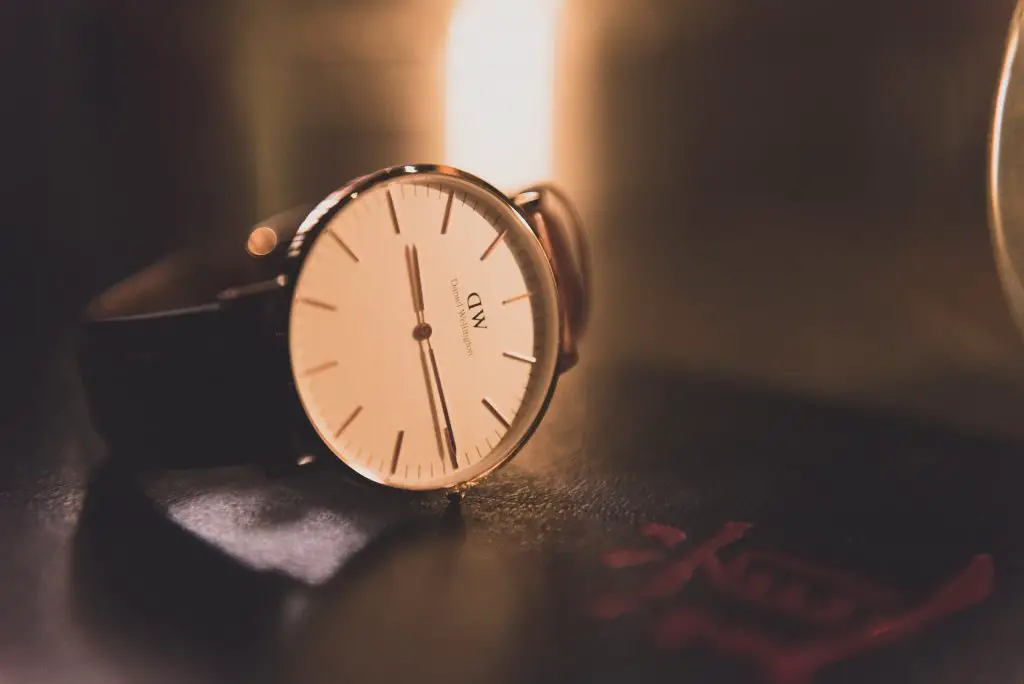Some watches can be extremely expensive, and a lot of expensive items are often linked to assets. But are watches considered to be an asset?
Watches are not assets, because a watch isn’t an income stream. An asset puts money in your pocket and a watch does not. Unless you purchase a watch solely for the purpose of reselling it, a watch is not seen as an asset.
Most watches won’t be an asset, simply because they are bought for wear. However, there are some nuances to all of this, which we will discuss in this article!

Table of Contents
Why Would A Watch Be An Asset
Most people see something as an asset once it appreciates in value and worth. The appreciation will, in turn, put money in your pockets, making it an asset.
Houses, for example, are seen by many as an asset, mainly because the price of the house goes up. Now, the house doesn’t put money in your pocket when you live there, but once you eventually sell it, it’s usually for a profit.
The same reasoning is used for watches. Many watches will slowly appreciate in value over time, putting them in the same situation as a house.
However, unlike houses, where most will appreciate in value, not every watch will appreciate in value.
There are a lot of cheaper watches on the market. These watches are mass-produced and offered for cheaper prices. To put it bluntly, they really aren’t all that special or unique.
Luxury watches, on the other hand, are more unique and rare timepieces. These aren’t mass-produced and they hold a sense of class and luxury. These types of watches will often appreciate in value, simply because they’re almost seen as collector’s items.
Because these watches can and will appreciate in value, many people will see them as an asset. They buy them for a certain price and a few years later, the price of the very same watch is higher.
Why Wouldn’t A Watch Be An Asset

On the other hand, some people would argue against this. Yes, a watch appreciates in value over time, but this doesn’t necessarily make it an asset. An asset should put money in your pocket, and having a watch lying around does not get you paid. By this definition, a watch is not an asset.
We can compare this to a house again. Some people say that the house you live in is an asset because it appreciates in value. What this appreciation does not do, however, is put money in your pockets when you live there.
With this reasoning, the house you live in is not an asset, but a rental property is. The rental property will give you a monthly cash flow, thus making it an asset.
Getting back to watches, simply owning a watch does not provide you with cash flow. Therefore, a watch is not seen as an asset.
Now, which definition you go with is up to you. Simply owning a watch does not make it an asset. You’re wearing it yourself and the watch does not generate income. However, if you can sell it later on, for a higher price, considering it to be an asset would not be out of place.
Why For Most People A Watch Won’t Be An Asset
Now that we know why or why not a watch could be considered to be an asset, let’s dive into this a little deeper and see just why for most people a watch won’t be an asset.
An asset puts money in your pockets, which, in the case of a watch, happens when you sell it. However, most people never really sell their watches. The most common types of watches that are bought are the cheaper, more affordable watches from designer brands or brands such as Timex or Invicta.
These watches are already rather inexpensive and offer little to no resale value. Why would you buy a used $100 watch for $200 when you can just buy a new one in the stores?
These cheaper watches are mass-produced and have little uniqueness to them. This makes it extremely hard to find someone who’s willing to pay above retail price.
On the other hand, luxury watches can be sold for a higher price. These are rarer timepieces with a limited supply. As you can imagine, these watches can be sold for a higher price.
However, most people buy these watches as their ‘lifetime watch’. Luxury watches can be extremely expensive and unattainable for a lot of people. When you finally are in the position to purchase one of these timepieces, you don’t really buy them with the intent to sell them off.
Of course, there is a small selection of people who do actually buy these watches with the intent of selling them later on. Now, for these people, a watch will probably be an asset, at least in their eyes. But flipping watches is a very difficult game and not something anyone can make easy money off.
Can All Watch Brands Be Seen As An Asset

There are so many watch brands out there, some focussed on budget watches, some on more affordable watches, and some on luxury watches. Not all of these watch brands create timepieces that are equal.
In fact, luxury watchmakers are known for their incredible eye for detail and use of exotic materials. Budget watchmakers, on the other hand, are known for making good and sturdy watches with less expensive materials.
These cheaper watch brands also often mass-manufacture their watches, which means there’s a huge supply of them. When you put this together with the lower quality of the materials, you get a watch that isn’t really one that will raise in value.
With that being said, it’s safe to say that budget watch brands do not produce watches that can be considered an asset. Brands such as Timex, where the watch itself costs right around $40, simply don’t create watches that appreciate in value.
Of course, this doesn’t mean they create bad watches! Their watches are great, especially for the price, and they do what a watch needs to do; make you look better and tell the time.
More expensive brands, such as Omega, Rolex, or IWC do create watches that can be considered an asset. These watches are luxury watches, made with high-quality materials, in limited supply, and by hand.
The manufacturing process, done by hand with high quality and exotic materials, really drives up the price of these watches. An entry-level Rolex already costs $6.000.
Not only are these types of watches more sought-after, but they also hold some intrinsic value. Whereas a cheap watch is made with plastic or steel, luxury watches are often made with yellow gold or titanium.
A luxury watch does not only get its value from scarcity and craftsmanship, but also from the materials themselves. This already makes it a much more attractive piece to purchase with the intent of reselling.
The higher prices also make it worth your while. Taking a 5% price increase on a $40 Timex would mean you made $2. Taking a 5% increase on a $6.000 Rolex would mean you made $300.
Closing Words
An asset is something that puts money in your pocket. For most people, a watch will not put money in your pocket, as a watch is bought to wear and to keep.
However, some people purchase watches primarily to wait for them to increase in price. After the price has appreciated, they go on to sell the watch, making a nice profit off of it.
Since most people do not buy watches only to flip them afterward, for most people, a watch will not be an asset. For the people that buy watches with the intent of flipping, a watch could be seen as an asset.
